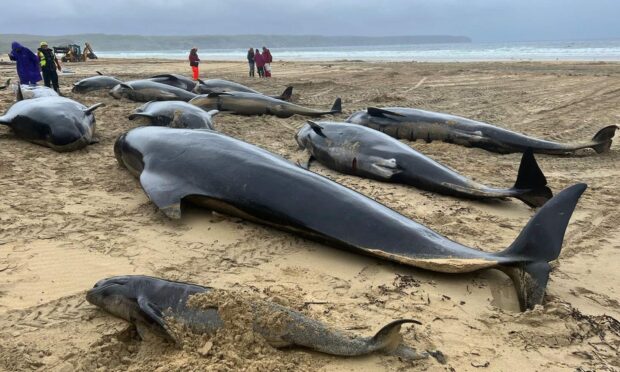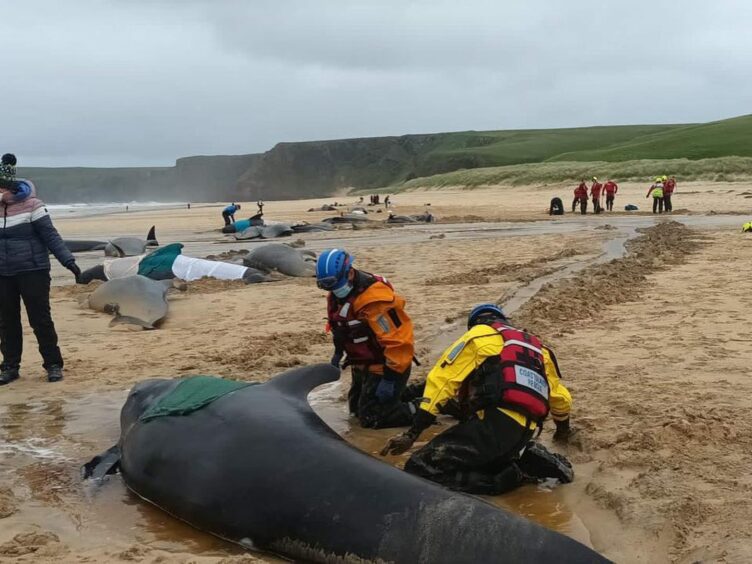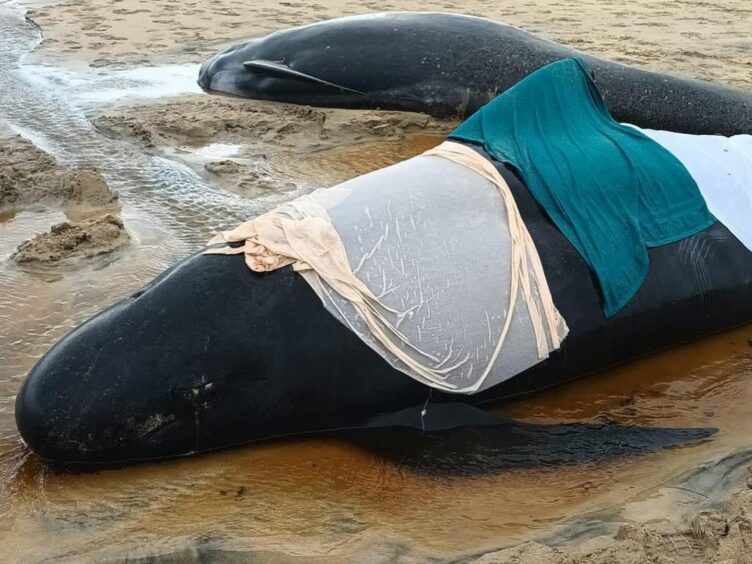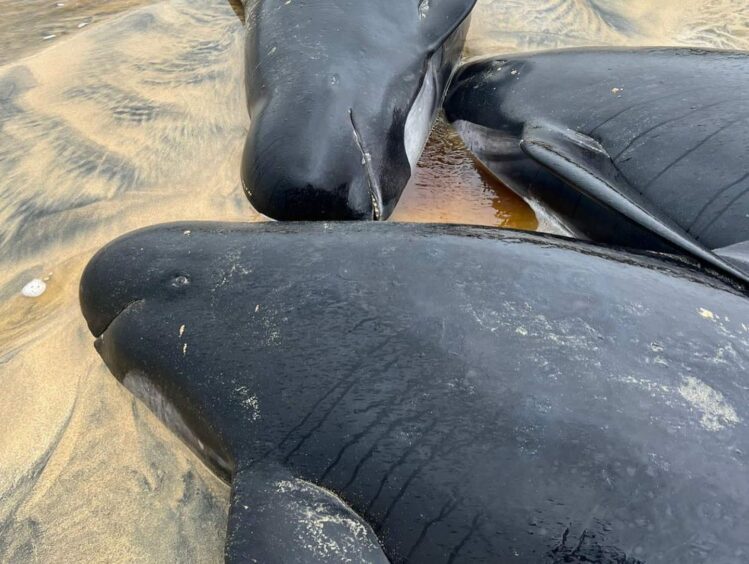More than 50 pilot whales have died after beaching in the Outer Hebrides.
Rescue teams were called to Traigh Mhor, on Lewis, shortly after 7am today and found 55 pilot whales stranded on the shore.
Police, fire and British Divers Marine Life Rescue (BDMLR) battled for more than eight hours to try and refloat the surviving mammals.
Despite their best efforts, only one whale was successfully refloated.
Among the dead was a female whale who had suffered a vaginal prolapse.
Experts believe the whole pod – comprising of both adults and calves – became stranded as the female tried to give birth.
Photos posted online paint a devastating scene with the beach littered with bodies of the whales.
Local MP, Angus Brendan MacNeil, tweeted images of the stranded whales and stated: “Reckoned to be about 55 pilot whales stranded on Traigh Mhor at North Tolsta in the Isle of Lewis this morning.”
Members of the public were being asked to stay away from the area as the road to the beach was blocked from public access.
‘This was an incredibly complex rescue’
In a statement posted on the BDMLR’s Facebook page, officials described the challenging conditions they endured on the ground.
They wrote: “This morning at around 7am, BDMLR were alerted to a mass stranding of around 55 pilot whales on the Isle of Lewis, Scotland.
“Unfortunately, none, apart from one that was refloated early on, survived the ordeal – the last animals were declared deceased at about 3:30pm.
“This was an incredibly complex rescue – the signal was extremely poor in such a remote area with our medics often having to drive one to five miles to get service to communicate with rescue coordinators at Head Office.
“On top of this, as well as our local marine mammal medics attending, medics from surrounding areas also prepared their kits and made their way to the island from the mainland. Rescue coordinators even facilitated flying in more refloatation pontoons from various regions across England and Scotland via Civil Air Support.”
Teams battled through rain and strong winds as they work to save the mammals with vets from surrounding areas helping to provide first aid and assess the situation.
BDMLR attempted to send out specialist equipment such as boons from the mainland using ferries or flying equipment over.
Additional refloatation pontoons were also flown in from across England and Scotland via Civil Air Support.
Agencies managed to refloat two of the whales however BDMLR confirmed only one was successfully refloated.
Conservation experts had hoped to try and attempt to refloat the surviving whales this evening.
However, at around 3.30pm, a forensics vet determined that the shallow beach and rough wave conditions made it too unsafe to refloat the remaining animals.
Considering how long the whales had been out of the water, they were euthanised on welfare grounds.
Experts from the Scottish Marine Animal Stranding Scheme will be carrying out post-mortems to try and establish any cause behind the deaths.
Members of the public are being asked to avoid the area to allow for the examinations to take place.
Why has the pod of pilot whales stranded?
There are generally between 400-600 whale strandings in the UK each year. The number is so high as sometimes mass strandings occur when more than one animal strands at once, often alive.
Experts suggest it is common for pilot whales – small whales characterised as part of the dolphin family -to travel in large groups.
It is not always clear why these mammals sometimes become beached.
In June 2015, three pilot whales died after a pod of 21 became stranded on the Isle of Skye. The post-mortem results carried out on the animals showed they were in good nutritional health and did not point to an exact cause for the behaviour.



